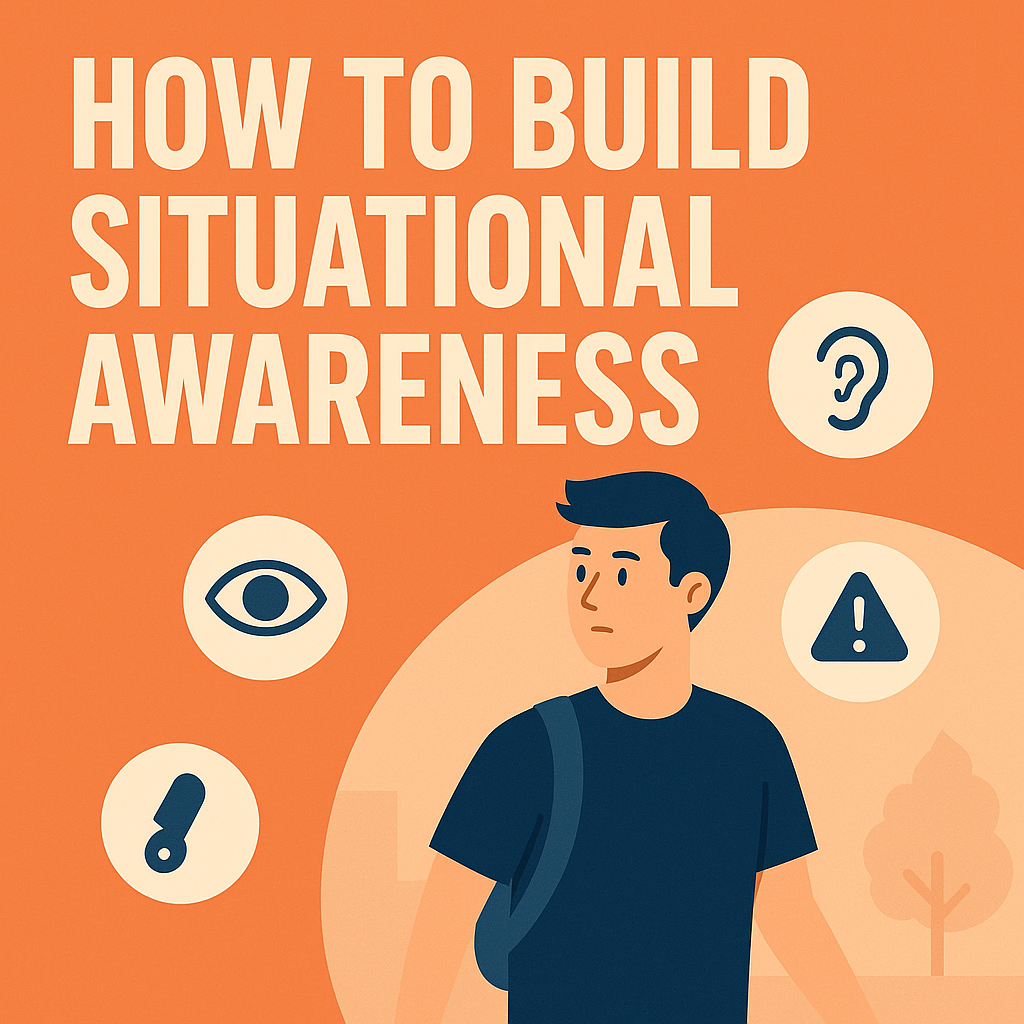
How to Build Situational Awareness (Even If You’re Always Distracted)
Awareness Is Your First Line of Defence
Most self-defence situations are won—or avoided—before they even begin. The secret? Situational awareness. But in a world full of phones, headphones, and endless distractions, staying alert can be hard.
Here’s how to build this critical skill without needing military training.
👁️ 1. Start With Your Senses
Begin by simply noticing:
-
Who’s near you?
-
What are they doing?
-
Where are the exits?
-
What feels “off”?
🧠 Train yourself to take mental snapshots when entering new places.
📱 2. Reduce Tech Blindness
Phones are awareness killers. Practice walking or commuting without staring at your screen. Use one earbud instead of two. Keep your head up.
📵 If you can't hear or see your surroundings, you can't defend yourself.
🧍 3. Notice Behavior, Not Just People
Don’t focus on appearances—watch how people act:
-
Are they loitering?
-
Following you?
-
Avoiding eye contact while getting too close?
🕵️ People in “hunt” mode often display subtle red flags.
🧭 4. Use the “OODA Loop”
A decision-making method used by pilots and martial artists:
-
Observe your environment
-
Orient to what’s unusual
-
Decide what to do
-
Act quickly if needed
🔁 Train this cycle in daily life so it becomes instinct.
🧠 5. Practice with “What If?” Scenarios
Whenever you’re in a new environment, ask yourself:
-
What would I do if someone got aggressive right now?
-
Where could I run?
-
What could I use as a barrier?
🎯 Mental reps build fast reaction time in real situations.
🔚 Conclusion: Awareness Is a Habit, Not a Skill
Situational awareness doesn’t mean paranoia—it means being prepared and present. Build it like a muscle, a little every day, until it becomes second nature.
💬 What’s Your Favorite Awareness Hack?
Tell us your go-to habits for staying alert and avoiding danger!



